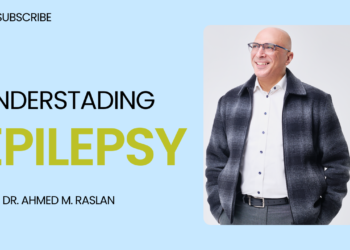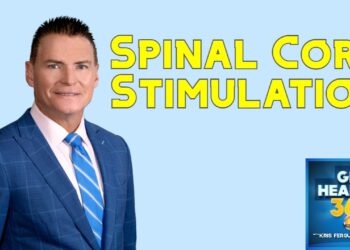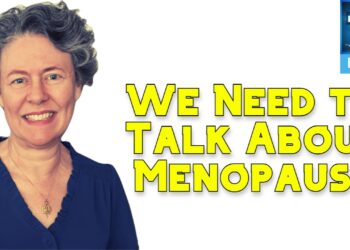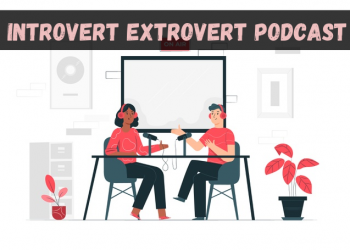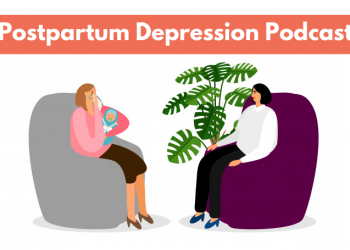Dynamic Running Therapy — An interview with William Pullen
Below is a transcript of an interview between William Pullen and Dr. Kris Ferguson of the Get Healthy Podcast.
For more information on William Pullen, Dynamic Therapy or any of the topics discussed here, please visit the Podcast page.

DR. FERGUSON:
Today we’re speaking with William Pullen. He is a psychotherapist. He works in west London, in the UK. He specializes in individual therapy and in young adults. He also works with young people dealing with issues like depression, motivation issues, anxiety, life changes, relationship problems, addiction. He also has a TED talk that I recommend everyone watching and he also has a book running with mindfulness, dynamic running therapy to improve low mood, anxiety, stress, and depression. So thank you very much for chatting with us today. Chris. Thank you Bobby. To jump right in, you were discussing on your Ted talk about how you dealt with depression in the past and it seems like if you can’t help yourself, it’s harder to help other people. So you’ve gone through depression and some other things. I think that would put you in a really good position to really empathize and understand when people are going through, when they come to see you.
W. PULLEN:
Well, you knew that may be why they call us the profession made of wounded healers. You don’t normally have to dig down very deep with your average psychotherapist and find the drama of their own life. They’ve sort of got through and has become the origin story of their career. I’m solidly like them. I’ve got my story. You can see it on my Ted talk, but yeah, just briefly about 12 years ago, I, I ended up, after a relationship ended very sort of heartbroken that turn into depression. I was turning 40 and it all got on top of me and I ended up in a very bad way and I went into therapy and I took up running. I mean, neither of those things happened overnight. It took me some time to realize that I was going to have to do something that I had to go from suffering to action.
DR. FERGUSON:
So were you a therapist when you went into therapy?
W. PULLEN:
No. No. Absolutely not.
DR. FERGUSON:
What were you doing before you became a therapist?
W. PULLEN:
I was working in television actually.
DR. FERGUSON:
So can you describe that journey a little bit more detailed? So the Ted Talk, you gave the highlights of that journey too. You had depression and then you found mindfulness and you found running to be helpful. But the problem with Ted talks is while they’re good, they’re very short and a lot of, I think key details are left out in that journey.
W. PULLEN:
Right. So you’d like the emotional journey that led up to the meltdown or what I did during the meltdown or …
DR. FERGUSON:
…give the Hero’s Journey because they are going to be… I know for a fact there are a lot of people out there who are where you were some time ago and things are falling apart and no one is helping them and they don’t really know where to go. And it will probably talk to a therapist and they will think, this therapist has no idea what I’m going through. So I’m done with them.
W. PULLEN:
No, I think it all goes back to sort of, um, I think it’s quite a masculine thing of boys being like, they’ve gotta be a little soldiers and not complain too much. And in my own case, I sort of, I had some fairly at times, fairly dysfunctional parents and I went off to boarding school in a foreign country at a very young age. You know, I just learned how to toughen up and get on with it. It didn’t leave me very well suited for dealing with, with feelings and the boarding schools in this country are what they’re really well put together to try to feed the bureaucracy, the men that would run the empire when we had an empire of course. And wasn’t unusual to find some 21–25 year old boarding school boy rung an entire area in India at a very young age because you were brought up to have a lot of responsibility and be really tough and assume leadership. So it’s very good at doing all of that. But it does it have a cost, which is that, uh, you’re a little bit too tough on the inside. It causes problems. Quite often you’ll find quite high levels of addiction and divorce and things like that just because it’s hard to date somebody like that. And the stress of being that person can lead to all sorts of crises. So that was my journey. I was sort of a tough little fellow until I found out I wasn’t, I mean, I’d seen some cracks along the way, but this was a big crack at 39. And um, yeah, it really disabled me. I always think that you get away with stuff that’s in your drawer in your past, you can get away with it for an awfully long time. But at some point, I think for most of us there’s a calling. There’s a moment where, I don’t mean a calling for a career, there’s a moment of I’m being summoned to fate. And at that point you have to get through a sort of narrow hoop. Yeah. It might be turning 50, it might be turning 40. It might be getting divorced, losing a loved one. And it’s going to call for quite a lot of strength and flexibility and understanding and patience. The ability to actually let things go, not just hold on because you don’t want to hold on to when there’s a lot of really painful stuff. If you hold onto all of it, like I was trying to do, you end up in a real pickle. So you gotta learn how to let go. And um, and so one of these days, something comes along, I think for all of us and my training, they always used to bandy around a saying that, “everybody suffers a mental illness on three occasions in their life”, typically around whatever it may be. A tricky adolescence, a divorce, a loss of a loved one, and mental illness being understood as a time when you feel ill with mental emotional problems as opposed to perhaps what others might consider a mental illness, which would be to pathologize people’s natural grief. Grief is not a mental illness as such. There’s nothing pathological about it. It’s a healthy normal response. However, if you speak to anybody who’s grieving, they’ll tell you or most people will that they feel pretty ill. So I mean it in that sense. So I’ve gone off on quite a ramble there…
DR. FERGUSON:
…but I think it gives a good insight. And in my line of work, I see people with chronic pain issues or physical injuries. And that tends to bring out the cracks that they have in their background or personalities because often they’re holding things together through work, etc. And then when they can’t work, all of these things come bubbling to the surface or little relationship issues that were there in their personal life. When they can’t work and be productive and do things, then they’re forced to deal with them and then things start to crumble.
W. PULLEN:
Yes. I mean I was just discussing this with somebody the other day about how many runners, because I’m quite active in the running community, and how many runners drift into real emotional distress when they get injured because they don’t have what you’ve just described there or are those coping skills in play and suddenly they’re left confronting who they are and if the’re injured for a long time, that can create a theater for an awful lot of held back drama just suddenly fill the stage and then suddenly you’ve gone from having an injury which has stopped you from exercising to having, you’ve got bodily problems and now you’ve got emotional problems and now you’re really free-falling and well you must know more about this stuff than I do in that sense because that’s when you’ve got that sort of chronic tandem thing happening and now you’re in real trouble. One thing, speeding the other. The body’s feeding the heart and the mind and you’re just spinning down. Right.
DR. FERGUSON:
Exactly. And that’s why a lot of the people I work with are also working with the, because I’m not a psychologist, I just learned a lot from psychologists. I’m not really in the position to counsel anyone like a psychologist would. I do what I do and they do what they do better. So I have heard that a lot of people who do ultra marathons, triathlons, etc. There’s a high correlation between that activity and emotional pain somewhere in their lives. And like you were saying, just to bounce off that is they use that activity to distract themselves or just get away from it. Because if you’re running, you don’t have to deal with it.
W. PULLEN:
Yes, exactly. And that’s the counter argument for exercise. I always think exercise is fantastic for all the obvious reasons about making you feel physically well and mentally well. However, the counter argument is that it can be addictive number one, which can be a good thing because I think it’s not a bad thing to exchange a health addiction for a drug addiction. I think it’s a positive move and when there are no positive moves to be had, that’s definitely a good first move. Anyway, so there’s that, but I think more commonly, and I think less recognized is how running can keep you in what’s essentially a dependent state with whatever emotional drama it is you’ve got inside. That’s just say that without the running or due to an injury, I might find myself forced to confront or given the opportunity to confront whatever’s troubling me, maybe trickling down into my marriage, et cetera.
W. PULLEN:
If I keep running and use that to treat myself, I may avoid doing that work for 10 years. So those people who you see running along with a tee shirt that says “running is my therapy”. That’s both a good and a bad thing sometimes. I always wanted to know what’s going on for those people because while running keeps you out of the depths of despair rather well, it can also lead you to sort of state of dependency with whatever drama it is inside of you. In other words, it’s only when we… Sometimes for some people it’s only when they stop running that they get an opportunity to address what’s going on deep inside them. And I don’t think it’s ideal obviously to be self-medicating using exercise. You know, exercise should be a bonus. It shouldn’t be at the heart of survival. But I’ll go back and say what I did before for people who are swapping one addiction for another, for instance, sport and running for drug addiction, I do think that’s a reasonable exchange and you’re obviously, we’d hope to move on past that second addiction. But the ultimately what one wants to be reasonably relaxed and healthy, and balanced in all ways, right? I mean, you’re the doctor. That’s the goal, right?
DR. FERGUSON:
I would say that the key to life is balance. However, that balance point is going to be different for different people. If you want to achieve something that is outside of the average, your balanced point is going to have to be different, but you’re going to have to be able to cope with that shift. You talked about a few things in your ted talk and one of the things was first just inviting someone to sit with you in a park and just where one person can talk and the other person just listens.
W. PULLEN:
Yeah. That’s something I came up with, which I call Empathy Walks or Empathy Runs. You can do them either which way. It’s a very, very simple exercise, but deceivingly profound and powerful and it works like this. You arrange to meet somebody in the park or somewhere green and one person’s going to talk for 10 minutes. One person’s going to listen and then you’re going to exchange roles and in between as you swap over, the person who’s been listening is going to give a very brief one sentence synopsis record of what they’ve been listening to, just so that everybody knows that that person’s listening. Now, what’s critical to this are two pieces. One that we rarely get 10 minutes to dig into any subject uninterrupted and it’s that uninterrupted piece that allows us to formulate our ideas better and to travel down deeper into things and perhaps get to something that feels very different than what we were going to talk about, but in fact is what we always wanted to talk about. So that’s one part of it. The other one that’s very important is that the listener understands that the listening role does not come with any kind of responsibility to fix or help or save or do anything. Your job is not to be a therapist, it’s not to be a kind person. It’s literally just to create a little sort of mini community where you’re going to listen. That’s it. The reason for that is I didn’t want the listening person to feel obliged to come up with answers or ask the right questions and moreover still perhaps is I didn’t want the person who’s sharing to feel like they’re putting a burden onto the other person and worrying about can they bear this, will they be able to survive the anxiety of responding to no, there’s no responding, there’s nothing. You just go uh-huh or something like that. And I’ve found that these exercises, whether you do them just as fun with a friend on a jog in the morning and you’re just giving somebody space to ramble on about what they liked about a TV show or whether it’s an opportunity to work out his deepest problems with your partner or your boss and it’s a side by sideness of it that works a camaraderie that creates the trust, the shared movement, the sense of movement itself, which is a sort of narrative which helps a narrative structure with your story, with your sharing. It helps you to reveal the story because you’re already going places. And of course it’s much less threatening running side by side. We’re walking side by side than it is looking at somebody right in their face. And then finally I’d say an important piece is that the part of your brain that’s concentrating on movement is essentially quite complex and takes, well a lot of brain power to move to track what’s happening around you and then have your body respond correctly. And I think that mops up the sort of excess awareness that one has. So you don’t find yourself watching yourself listening to somebody else. You’re just doing the listening bit because the ten percent would be watching yourself listening is concentrating on not walking over that snake or whatever it is. How does that sound to you?
DR. FERGUSON:
Well, I can get really medical and am debating whether I want to or not. But from the medical standpoint, there’s definitely a link between the mind and the body and the mind influences the body, the body also influences the mind. And I think it’s fascinating what you were talking about, how you’re walking or running and then your brain that would normally be very self critical of what you’re doing is taken up with just moving so you can more freely speak. It’s interesting walking or running cause I’ve never thought about that where it’s less intimidating sitting down with someone for coffee where you’re just staring at each other with all of this mental energy to get in the way of things
W. PULLEN:
and so much does get in the way of things particularly with men, I think, but yeah. No, I mean one ends up. That’s one of the processes of psychotherapy I think is sitting with somebody and creating that therapeutic alliance. You’ve got to get past that. Those first few sessions where you feel incredibly self-conscious. Well, how do I look or, as I talk about this, how do I sound? And you’re scanning the other person’s face for feedback on what it is you think they may be thinking about you or that doesn’t get you anywhere. There’s no need to consider that that’s a waste of time. It’s better just to stay in your own place, stay in your own mind, stay in your own heart as you talk about these things. Because you don’t need to care for the psychotherapists. You don’t need to worry about his opinion. He may or may not like you. He may or may not think that your problems are big or small. Who knows? You’re never going to know. But this is your money. It’s your time. Use It wisely. If I ever feel like the client is overly concerned with my opinion, I quickly try to sort of bring that up and make it clear that this is a place where they can say anything and do anything and if they’ve got some strange habit that uh, or whatever it may be that’s causing them trouble I’m the person to talk to about it because I’m the one person they can talk to, who’s not going to judge them because one, I’ve heard it all before and two cause you’re paying me not to judge you. You’re paying me not to tell anybody. You’re telling me not to do anything but just listen to you and be with you on it. I think most therapists are pretty good at that. That’s our bread and butter.
DR. FERGUSON:
So when you see your client, do you go for walks or jogs with them or do you do it the traditional way where they lay on a couch or sit on the couch and chat with you?
W. PULLEN:
So I do both. So I developed my own kind of therapy, which is sort of what my book and my app is about called Dynamic Running Therapy. If my clients are following Dynamic Running Therapy, they’re doing that with me, then we’re always doing it. And we’re always outside unless it’s raining. And then I have my clients I see inside, and I don’t mix the two up. So that’s your answer. But yes, there are my running clients I might’ve walked in. It’s very important that for the therapeutic alliance that the clients understand that it is client led. So the movement that we’ll do during those 15 minutes is entirely up to the client.
W. PULLEN:
And that’s important for me because I need to see what choices they’re making and how those choices reflect on what they’re talking about. So there’s a lot of watching how people walk, how they run, how they emote, what changes as whatever story comes up. Are they running a lot today? Do they normally for only 10 minutes or are they runing half an hour today? Are they not running it all? Are they sitting there quietly? I see you do whatever you want in these 15 minutes. I’m just going to do the same thing you do, but then I’ll reflect it back to them if I notice anything unusual. I noticed today you were very quiet, I notice that we’re sitting more than we normally do or you’re running fast or when we talk about your father you accelerate. Is there something about that?
DR. FERGUSON:
And what I kept really thinking about was, cause I deal with men from the military, is that it seems like, not to stereotype, but I’m going to use that. Women seem to be better at dealing with psychotherapy issues whereas men in general, like you mentioned, they don’t really share because men are taught to be very strong and deal with their issues and not share them really with anyone. Otherwise that would be a sign of weakness. And with folks from the military, it seems like they will talk about a bond that they have with their other soldiers that they don’t really get with anyone else. Even for the veterans that don’t see active combat, I was thinking about them being involved and they’ll tell me these things that they’re involved in these long marches or long periods of just walking and being around other people and then they end up speaking and that’s how they develop that bond with other people. Whereas I don’t see that happening with people just being in an office, sitting down and having lunch together.
W. PULLEN:
Yeah, absolutely. Well, you know, I think soldiers are perhaps the closest they’re living according to what their DNA tells them they should be doing. Oh, we still have the bodies of our ancestors, of course, and our ancestors for hundreds of thousands of years where persistence hunters. So we were out on the Savannah with a couple of friends and we, um, we’d hunt down an antelope, exhaust it over a period of sort of a day chasing it. They move fast, antelopes, but their hearts beat too fast for them to go for very far for very long. So if you can just keep your eye on it. But to do that you’ve got to do that with, you need a couple of guys to sort of work together with you. And I think that’s probably the birth of so much society and so much cooperation.
W. PULLEN:
We have to work out who’s good at what on this team, I have to trust you. We have to then trust each other to share out the meat later on. It’s a great opportunity for cooperation of course. Then I think our hormones developed our brain chemistry developed in a way that rewarded cooperation and it rewarded, you still get Oxycodine, which is the other one… actually oxytocin. Oxycodine is the one that uh, you got all the problems with in America and here now
DR. FERGUSON:
That’s actually Oxycodone.
W. PULLEN:
Okay. Yeah. So yeah, it feels good and it’s supposed to feel good out with a brother hunting down an animal or hunting down the enemy is a very powerful bonding experience. And you’ve only got to put a group of men together. We love to build things together. We love to cooperate to achieve something powerful, build a bridge, go to a football game and support our team 20,000 of us who are singing the same song. Then the ones who are more active still turn into hooligans and then they love fighting together and then they meet arrange to meet, I mean in Russia they organize where all the hooligans arrange to meet somewhere of one side and they meet the other guy then and then it just sort of kill each other because they have a really, I guess hard core need to just get into fights. So I think that’s why your soldiers have spirit and so much bonding and trust and cooperation. It’s very different from getting home and getting into that office and your pick moment is by the water cooler and somebody says, did you watch game of Thrones last night and it’s back to your desk again.
DR. FERGUSON:
That sounds describing, that sounds depressing versus let’s go build this together or let’s go on, let’s go catch dinner together.
W. PULLEN:
I’ll admit that. I think I struggle with this. I work in a isolating industry. I don’t have any coworkers. I can’t really share much of what I do. Not In detail, not to people, not in the business. I’m mostly a witness and I think as men we need to, and again, we’re talking stereotypes, but I think that a, and perhaps all of us, I can’t speak for women, but I feel confident I can speak for men. We need to do things with our hands. Not always, no. All of our lives, but enough of our lives. That’s why men like to tinker in that basement, fixing a bicycle, building something, and it’s why men, a lot of men, particularly American men, I think take on enough tools to build a space shuttle. They’ve got every kind of electric soar or an all the rest of it, but you think they were professional carpenters, but it feels good as a man, we like to be doing things with our hands, creating. I love going on adventures. I love to explore the countryside, but I guess that’s every [inaudible]. What do you do? Do you find yourself at the same merge?
DR. FERGUSON:
Well, it’s interesting that you talked about how we evolved over time to be the way we are. So I did like martial arts when I was younger and I recently reconnected with that doing martial arts. So I tend to just get along better with people who do specifically Brazilian Jujitsu now because some people just have that need for physical combat, but in a safe environment where no one’s really getting hurt, but it’s the closest I think you can get in a safe way to really fighting someone as hard as you want to. But you tend to bond with people in that gym because there’s that mutual respect. I think it’s a classic story of two boys will go and fight and they’ll really go at it, but then there’ll be best of friends five minutes later. So that tends to be what works for me. And it’s interesting because my wife tells me I’m much happier when I’m doing it versus not. You were talking about mindfulness first. What is mindfulness and then how does that factor into the running or walking?
W. PULLEN:
So my app and my book have descriptions on how to walk or run mindfully. And then there’s the mindful component to the dynamic running therapy, which I have, which is called the grounding persists, which is a four step process which involves like all mindfulness. It’s so kind of coming into the present, trying to surrender yourself away from ruminating about the past or the future. And then just letting go of all of that sort of anxiety in favor of just trying to be present with where you are. And typically the way that’s done is by anchoring yourself in your physicalities or you might concentrate on your breath. Some people count their breaths. They’re doing mindfulness meditation when they’re running. What I tell people to do is to count every other footstep, every breath count, trees, count Rod, fellow runners, just count anything, count up to 10 the stock. Again, the idea behind it is actually, it’s quite profound actually because we all have this ambivalent relationships with ourselves.
W. PULLEN:
We like ourselves, we don’t like ourselves. We like looking after sales. We don’t like looking after ourselves. And when we have uncomfortable feelings and fears about the world, we can quite often be rather avoidant in terms of dealing with them. And that leads often to a sort of relationship where you sort of keeping this thing alive. Like if you were to sit down and make peace with it and say, well, work through what may happen if whatever it is that scaring you about the future happens and that she spent five minutes actually sitting with it and thinking about it. But instead what we do is we try to avoid it or fix it. So we try to fix it by exercise or something or watching TV or we try to avoid it by TV or whatever it may be. But that actually kind of keeps it alive.
W. PULLEN:
So what mindfulness does is it notices this relationship that you have with yourself. It’s constant tug of war with the future, with the past, with fears and avoidance. And it just says, okay, just let that go. And the way you’re going to do that is each time you tell yourself during your mindfulness meditation, you’re going to count to 10 for instance with your breath, and when you get to four, then you start thinking about your boss at work again. You Start and then you go back to one. Each time your thought is interrupted by one of these kinds of thoughts. Then you go back to one. Now of course, that becomes quite frustrating after awhile and then you start to, that frustration eats at you and so you find yourself even more distracted. That’s when at some point the practice should click and you realize the way the let go is to, so when you notice it the first time, let’s say you four minutes in, full breaths in, and you notice yourself gap.
W. PULLEN:
Instead of go, go, go. There you go. Then you’ve screwed up again and I’m, you’re good at this. This is not the day to do this, this and my boss is too big a problem for me. You just go, okay, I’m just going to let that go. Let that go. It’s okay. That I didn’t do very well here and it’s okay that my boss is whatever he is and I’ll deal with that on some other occasion. But right now I, we’ll let that go and just stop McKamey and you get back to one and what you learn is how to let go and how to just learn how to be in the present. We’re all now, so sort of stretched out around the world in the past, in the future, all of our needs stretched out in terms of being on the Internet, having multiple accounts in multiple lists and multiple, that is second life digital world that we live into. It’s um, we all of us would benefit just to come back to the here and now. Do you know what I mean? Hey, I’d like your thoughts on, so people will see, go on Twitter or social media and they will just speak sometimes
DR. FERGUSON:
whatever is going across as crossing their minds. And how is that different than just sitting or walking or jogging with someone and just speaking for 10 minutes uninterrupted because you can go on Twitter or any sort of those social media platforms and speak uninterrupted for as long as you want to.
W. PULLEN:
Oh, that’s a really good question. I mean it’s different in so many different ways. I think first start mindfulness gets you into a place where you’re less likely to waste your breath on things that aren’t really worth saying and your more likely to be more aware of the effect that the comment you’re just considering making on Twitter is both counterproductive to your own happiness as much as it is to anybody else’s. So that if you’re gonna spit betrayal all over the internet, you probably can’t do end up are pretty hateful intolerant person, which when you’re surrounded by your own people might be fine. So you can get around spot of your intolerant friends to come around. You can all be intolerant now feel great. But when you get to work other people in your aware on the high street and then you find that the all these other people getting in your way and now you are in intolerance is going to really be fled out and soon you’re just going to be pissed off with everybody. Whereas the mindful person hopefully is taking their time, finding that pace, doing things that are rewarding, letting go of negative thinking about themselves and others and favoring and instead a more serene way of being in the world. That’s a much better
DR. FERGUSON:
or more with well-developed thought than I had I, I knew there was a difference but I couldn’t really articulate why there was a difference between
W. PULLEN:
simply posting on social media versus speaking with someone else. Yeah. It brings the worst out of this plus 140 character thing and there are so many reasons why and suddenly about formula. Just opening your mouth is bad news generally. I mean I think that so many of us speak so poorly. It’s like, again, it’s one of the reasons why I think that 10 minute thing so good because it world is now into sound parts and you just can’t make yourself understood with the series of 140 characters soundbites. You just can’t represent the complexity of what you’re feeling. So of course people jump in and they make the statements and then they don’t have much time or space. So they use more extreme language to try and, um, seize the opportunity that they’ve got. And then of course that becomes, uh, a war game as that intensity spirals up and it doesn’t do you any favors.
W. PULLEN:
And I think that’s the climate that we’re in. I think it’s great chamber, it doesn’t help anybody. Certainly it doesn’t make them feel happier. It takes real care to speak to somebody. I think it’s one of the things that therapy helps you with is you learn how to think about how other people are going to experience what you’re saying and so that you choose your words Catholic. And I think particularly with the political climate in bet your country and mine, cause you know we’re very politically fractured over here with Brexit and uh, and we all know about American stores. For instance, I’ll give you an example. People are now confused between an opinion and a fact. I think 30 40 years ago you would belong to political party and you would say, I think we should have more schools. I think now they’re all bunch of people out there who think that they know that we need more schools [inaudible] schools.
W. PULLEN:
And that’s a fact. No, you are in possession of an opinion. It’s exactly one opinion. It’s worth no more than anybody else’s. It doesn’t matter who you are, what you are, it’s your job in the same way it is to validate your wife’s feeling about American football. The fact that for her it means nothing. You have to understand it. You have to say, well that seems reasonable to me. Well, I don’t agree with it. I can see how somebody else has a different vision for me because that’s their opinion. I have mine. It’s not a fact that we need better schools anymore than it’s a fact that American football started the road that maybe American football could be better. Maybe your wife might get into, maybe there could be a way to get better schools, but define what you mean by better schools and let’s have a, you know, how long has that conversation going to take? How will we know when the schools are best at what costs to the economy and to healthcare? Will that be to pay for those schools and explain that to the people being thrown out of mental asylums to pay for that extra school down the road. Is that reasonable if your wife was in that asylum? Perhaps not so much. We didn’t call them asylums and Emoji.
DR. FERGUSON:
No, I don’t really know what they’re called anymore. Institutions or something. Solutions. I totally agree with everything you’re saying. I think there’s a lack of empathy everywhere where people forget to really try to put themselves in someone else’s place and feel what they’re feeling, to understand where they’re coming from. Now if you have someone that is kind of like in a pit of life and not doing well, then it’s easy to lose friends where you’re not kind of on the top of your game and because really you’re sad or depressed or anxious and you’re probably not the most fun person to be around. So for someone in that situation, it might be hard for them to find someone to say, how about you just listen to me for 10 minutes. But I guess this is where therapists come in. Yes. Or you can just arrange
W. PULLEN:
John, find someone. There are so many social online groups. You could try and find someone on an online group that’s sharing your condition, whatever it is, and ask them if they want to go for a walk. I want to give back to the political piece because I think it also, it speaks to our relationship with ourselves, opinions and facts. So it’s not a fact that I’m depressed, it’s not a fact. Because if it were a fact, I’d be depressed forever. It is a thing that’s coming and it will go and I can help it go. So it’s important that I understand that about myself as much as it are, understand about it. And if I’m intolerant about other people’s, I’m probably intolerant with myself as, and that includes my feelings. So ultimately that’s what kind of makes me rigid and rigid. People picked up guns, not all Richard people pick up guns, but many Richard people pick up guns, they end up feeling sort of cornered in the world and that makes you angry and it frustrates the nervous system and you start to feel like there are people breaking into the country, left, right and center coming off to you and yours, even though you know you live in the middle of nowhere and you need to check that.
W. PULLEN:
But I have a problem with the right hand. The left actually on the left, you historically have been understood themselves as the tolerant. Kinder people are now completely intolerant of the right. So actually there is intolerant. They’re just intolerant to a different way as a right or intolerant about the wall and things like this. And the laughter and tolerant knows them. Uh, but it tolerance is intolerance, right? You don’t get to say, oh well I’m better than you cause I’m intolerant about a better thing than you are. If the right thing that spending money on the military and building a wall is more important in building schools and those are their opinions, then you have to accept them and validate their opinions. You don’t have to share them. You don’t say theirs. These are bad people. You don’t say it about your wife. If she has different ideas from you, you set that other people have different ideas and in that way you don’t feel threatened by them. You just all, you feel less threatened by them.
DR. FERGUSON:
Right. I think that’s a very, very good point is to acknowledge that these are opinions. You can still be friends and just have different opinions, but people are going to have different opinions for different reasons.
W. PULLEN:
Absolutely. Yeah, and we should welcome people with different opinions and you don’t want everybody to look and sound like you do, do you?
DR. FERGUSON:
No, because that would not make for a pleasant day.
W. PULLEN:
Well it wouldn’t, and you couldn’t. I mean, forget about listening to any music on the radio. They would all sound like you do. It’s probably not very good to begin with. What are you gonna Watch a TV shows with all the actors look like you sound like you. It’s all the same values as you. It’s only going to be one film you can ever watch over and over again with safety people playing you looking like you, I mean life would be so dull.
DR. FERGUSON:
Well, I’m going to circle back to something you thought so as people I think get more and more away from the center where they agree actually as you become more extreme to the left and right, you tend to look very similar regarding your intolerance to other people’s ideas and your animosity towards anyone with different opinions than your own. Because I know people that say are exceptionally religious in their religious zealots, but then you have people that will say that God is bad and they’re extreme atheists, but because they have moved so far off center, they function almost in the same way and for atheists being an atheist actually becomes their religion and they get hypersensitive. Anyone criticizing their opinions?
W. PULLEN:
Yes, we are in the age of, I mean Heidegger in the 1920s Allen Watson, in the 50’s so we were in the 1960s in the age of anxiety. I think we’re in the age of intolerance now, which is even worse than anxiety. I think you go past anxiety into intolerance and then finally into annihilation. I think. Yeah, I feel like I’m surrounded by a bunch of idiots to be honest, and that’s not to say that I didn’t feel idiotic sometimes too. There are things that get me up. You can’t be living in the age of intolerance without suffering some intolerance yourself. Either you are intolerant about all the intolerance that’s going on around you or you just find yourself being intolerant anywhere yourself. I get intolerant, I get frustrated by lots of things and I have to remind myself, no, breathe, let it go. It’s not a thing. It’s not personal, but I don’t know because we’ve got so much awareness and so many things are so easy now you do them over the Internet.
W. PULLEN:
I think we’ve come to believe that we’ve either got it right or some kind of possibility of if we try hard enough, we’re just getting rid of all these people. There’s a way to avoid it. We just got to work it out. And actually there’s no way to avoid it. There’s no way to avoid differences. No way to avoid that. All you can do is learn to accept it and even learn how to have fun with it. And if it’s really, really that bad then you can live in a cottage somewhere in the middle of the forest where you don’t have to meet anybody and you can be friends with the bears.
DR. FERGUSON:
which some people have done and that seems to work for them. Absolutely. So William, any other closing thoughts on running mindfulness? So again, just to summarize, you’re a therapist in England in where exactly are you in England? London.
W. PULLEN:
You had it, right? Yeah. West London.
DR. FERGUSON:
And you have an app that people can download and then it’s running therapy.
W. PULLEN:
Exactly. Only for Apple, I’m afraid.
DR. FERGUSON:
Your app does have singing meditation, three minute breathing movement and mindful walking, mindful running, grounding exercises, dynamic running therapy for anxiety also for depression.
W. PULLEN:
Yeah, that’s a whole program for how to use running with depression and help yourself. And there’s one there for anxiety too 20 sessions long. I really recommend that for people and the whole thing’s free, so that’s even better.
DR. FERGUSON:
Which is very good of you to do because not a lot is free. It’s definitely, I would say worth checking out and downloading. And you also have your book Running With Mindfulness, dynamic running therapy to improve low mood, anxiety, stress, and depression.
W. PULLEN:
Yes, and I’m quite proud of the book, it’s in 13 countries now. Penguin. Pick up a copy for fun exercises for running with your kids as well and it’s got the empathy runs in there that we talked about. There’s a bit of everything there. I think it’s just if you don’t run, if you don’t run, but you think you might like to the book is a great way to start running.
DR. FERGUSON:
It’s impressive looking it up, at least on the site that I’m looking at, it has 51 plus thousand reviews and a 4.68 it’s a very high average rating.
W. PULLEN:
Fantastic.
DR. FERGUSON:
So thank you very much. And for anyone who’s listening, we’ll include all of this contact information, social media contacts that he’s willing to share in case anyone wants to get in touch with him.
W. PULLEN:
Chris it’s been fun. It’s been real, as you say over there.
DR. FERGUSON:
It has been real. I don’t really use that phrase, but yes, that is exactly what they say over here.
W. PULLEN:
Have a great rest of your Sunday. I’ve enjoyed chatting too. Thanks.


